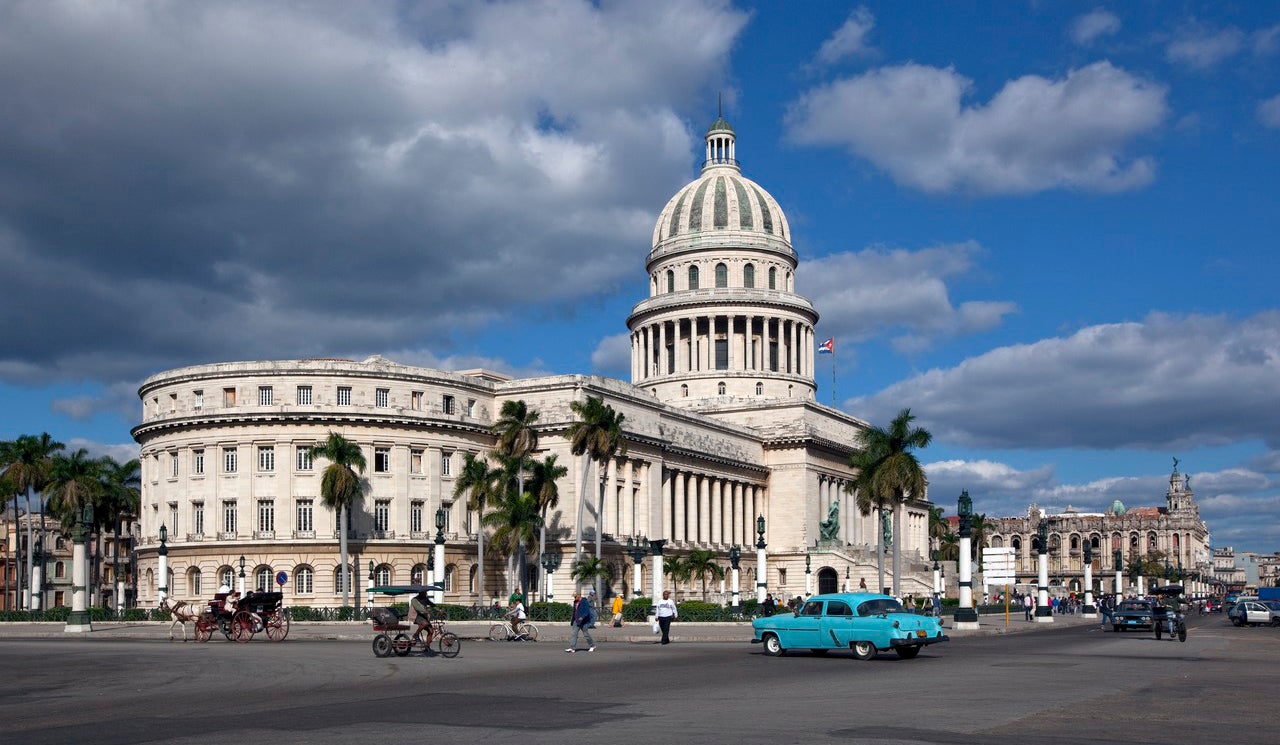
In a bold move to reboot the nation’s economy and vaccinate the population, Cuba is close to signing off its first few in-house Covid-19 vaccines.
Cuba is in the midst of developing four homegrown Covid-19 vaccine candidates, two of which are set to start Phase III trials. The news comes at a crucial time as cases and deaths spike on the communist-run island following the government’s decision to reopen borders to international travellers in December.

Discover B2B Marketing That Performs
Combine business intelligence and editorial excellence to reach engaged professionals across 36 leading media platforms.
Throughout 2020 the Caribbean nation managed to keep the spread of the pandemic somewhat under control, but February 2021 became the country’s deadliest month yet with 108 deaths and 7642 new cases, according to Cuban government statistics.
If successful, the vaccines developed in the country could help boost an economy that has been hit hard by the pandemic and dramatic drop in tourism over the past year.
Soberana-2 leads Cuba’s Covid-19 vaccine programme
Two of the island’s vaccine candidates are named Soberana – Spanish for sovereignty. The remaining two are called Abdala, after a poem written by Cuban revolutionary hero Jose Marti, and Mambisa, referring to Cuban guerrillas who fought for freedom against the Spanish.
As developing countries compete with far richer nations for a limited supply of vaccines, Cuba’s risky venture to produce its own candidates can be viewed as a display of national pride as much as it is a response to a public health crisis.

US Tariffs are shifting - will you react or anticipate?
Don’t let policy changes catch you off guard. Stay proactive with real-time data and expert analysis.
By GlobalDataThe Cuban government has announced that Soberana-2 will commence Phase III trials on 44,000 participants in March.
Eduardo Martínez, president of state pharmaceutical conglomerate BioCubaFarma, which is overseeing vaccine development, told reporters in Havana that thousands of people had participated in earlier trials of its Soberana-2 and Abdala vaccines, which showed a “potent immunological response” and no serious side effects, the Financial Times reports.
Both vaccines are conventional conjugate vaccines in which part of the coronavirus spike protein is fused to a carrier molecule to boost stability and efficacy.
Soberana-2 has also begun widespread trials in allied countries Iran and Venezuela. Mexico is also reported to be in talks with Cuba to start trials soon, with Suriname and Ghana interested in ordering doses when they are ready.
Two doses, administered two weeks apart with no special refrigeration required, will be trialled according to the government, but researchers will not know whether two or three doses of the vaccine will be needed until the Phase III trials are completed.
“We need many vaccines to vaccinate 11 million Cubans. If we are estimating that Cubans will need one or two or three doses, we are estimating that Cuba will need 30 million doses,” said Dr Tania Crombet Ramos, director of the government-run Center for Molecular Immunology in Havana, as reported by CNN.
Initial results from the Soberana-2 trial are expected by May. The Abdala trials are expected to start later in March. If the trials prove successful, BioCubaFarma said it could produce 100m doses by the end of 2021.
Officials say Cuba will export excess doses of its Covid-19 vaccines at cost price plus a small margin to support its healthcare system. Patents may be licensed abroad for production and vaccines donated to the poorest countries.
Cuba’s track record of outsized pharma contributions
As a small nation, Cuba’s vaccine efforts are drawing some surprise and scepticism but experts in the country insist that this is unwarranted. In the 1980s, former Cuban national leader Fidel Castro built the country’s medical sector to work around US embargo restrictions by investing in biotechnology and immunology.
Since then Cuba’s labs have produced novel drugs that have had a global impact, namely the first meningitis B vaccine and the only effective treatment for serious diabetic ulcers.
Last year, Cuba drew worldwide attention for its programme that saw thousands of healthcare professionals shipped abroad to help 40 countries battle the pandemic.
Cuba also produces 13 medicines used to treat Covid-19 symptoms with half of them being Cuban innovations, the government said. They include two anti-inflammatory drugs, itolizumab and Jusvinza, which the government claims have a high success rate in treating critically ill patients, and which have been used in India and other countries.
Some experts and diplomats have said Cuba will need partners if it is to produce large quantities of its vaccines for export as the country has limited production capacity due to a lack of resources.
“The US embargo really limits access,” said Arachu Castro, professor of public health in Latin America at Tulane University in the US in an interview with the FT. “Cuba has a lot of difficulties accessing medication and medical equipment that has any US component.”
Researchers in the country appear to have more confidence in Cuba’s capabilities.
“We have productive capacity for millions of doses of the vaccine,” said Dagmar Garcia Rivera, a researcher with the government-run Finlay Institute for Vaccines. “Probably more of the vaccine than Cuba needs. At some moment we have will some vaccine or some level of doses available for other countries in the world.”
The world will be watching and waiting for the results of the upcoming trials that could not only bolster Cuba’s reputation in pharma and biotech but also dramatically boost an economy under huge strain.
As reported by the FT, National Security Archive senior Cuba analyst Peter Kornbluh said: “If successful, Cuba’s development of a vaccine will become another renowned example of a small island nation making a historic contribution to world events far beyond its size.”





